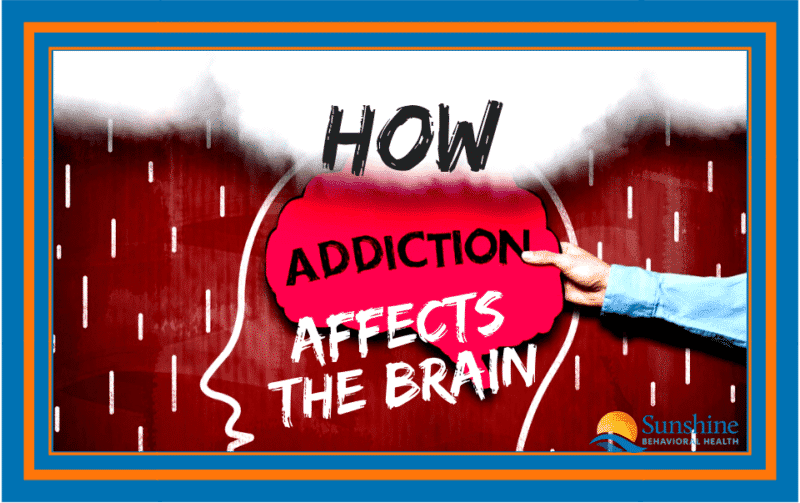
The brain is an organ of the body that must function properly to ensure survival. Individuals can adapt to their environment and live happy and healthy lifestyles when the brain functions well. However, when individuals are addicted to drugs or alcohol, their brains could end up functioning improperly. Addiction is a dangerous cycle that many people don’t understand. This lack of understanding often comes from the lack of knowledge that addiction is a biological disease that changes the brain significantly. Understanding that addiction is a brain disorder can be an excellent first step to ensuring you or your loved one can get the treatment necessary to fight it.
Changing the Natural Balance
One way that addiction affects the brain is the change in the natural balance between the body and mind. Homeostasis is a biological process of the brain that it needs to maintain to function well. The balance becomes off kilter when changes are made to the body, such as when drugs or alcohol are used.
With addiction and the brain, over-stimulation will interfere with homeostasis. When drugs or alcohol are abused, the brain will change from homeostasis to allostasis. The changes to the brain include a need to obtain drugs, difficulty quitting abusing drugs, and becoming obsessive with the substance or alcohol abuse with nothing else in life mattering.
Changing the Chemistry of the Brain
The brain controls communication in the body. Think about how the brain works in general. We have five senses: sight, sound, taste, touch, and smell. The brain communicates with other body parts to help us use our senses. The brain takes in information, analyzes it, and processes the information as needed.
The communication system of the brain is always adapting and changing. We can learn and remember thanks to this. However, there is a dark side to the brain’s ability to adapt. Drugs and alcohol can easily alter the communication system. This then alters the function of the brain, which can cause the symptoms of addiction, including cravings, compulsions, and withdrawals.
In the brain, there are neurotransmitters. This component helps to send information between the brain and the body. When a person struggles with addiction, certain drugs will affect neurotransmitters differently. Neurotransmitters in the brain include norepinephrine, serotonin, and dopamine. Varying drugs will affect the neurotransmitters in their own way.
Methamphetamine, cocaine, and opiates can have an especially big effect on a brain’s dopamine levels. Drugs like marijuana also affect dopamine, while alcohol changes GABA systems. By learning more about how drugs and alcohol affect the neurotransmitters of the brain, it becomes clearer why addiction creates certain behaviors. Treatment is needed to teach individuals how to make better decisions.
Structure of the Brain and Functioning
In the brain, there are several structures and regions. The brain’s communication system will allow each region and structure to coordinate. Each section also serves a different purpose. Several problems can occur with addiction and the brain based on the sections and regions.
Such issues can include:
-
Impaired decision making
-
Impulsivity
-
Compulsiveness
-
Drug cravings
-
Drug-seeking behavior
-
Withdrawal effects
-
Relapse triggers
-
Stress regulation
Take for example impaired decision making. Drug or alcohol addiction often have a massive affect on the cerebral cortex. The cerebral cortex is used to control decision making. When drugs or alcohol are introduced, it can override an impulsive urge and a person may act without thinking or considering the consequences.
Cravings are another example. The brain controls cravings in general when it comes to food and sex. However, for a drug or alcohol addict, the cravings move from the traditional bodily needs to having a powerful desire to use more drugs or alcohol.
The brain has a reward system that ensures our survival. Food, water, and sex activate this reward system. When the brain is rewarded, it will release dopamine. This creates a pleasing and enjoyable feeling.
Addictive substances will activate the release of dopamine creating a pleasant feeling. This then stimulates the repeating of harmful behavior, be it using drugs or alcohol. The addict will know that their behavior is harmful, but the good feeling outweighs the bad when the drugs or alcohol are not used.
It can be difficult to fully understand how the brain is affected by drug and alcohol use. By having the assistance of a team of professionals, you can begin to see how your behavior is affected by how the drugs and alcohol affect the systems of the brain.
Whether you or a loved one is facing a drug or alcohol addiction, part of the problem is how your brain is responding to the substance abuse. By contacting an inpatient rehab center and learning more about treatment options can help you begin to get on the right track.
The process of treatment includes removing the damaging substances from the body and focusing on retaining the brain to its natural performance. Seek the treatment you need today to be able to start working on renewing your body and mind for a healthier you. Assist loved ones with seeking treatment to ensure their potential.
A Message From Our CEO
Medical disclaimer:
Sunshine Behavioral Health strives to help people who are facing substance abuse, addiction, mental health disorders, or a combination of these conditions. It does this by providing compassionate care and evidence-based content that addresses health, treatment, and recovery.
Licensed medical professionals review material we publish on our site. The material is not a substitute for qualified medical diagnoses, treatment, or advice. It should not be used to replace the suggestions of your personal physician or other health care professionals.




